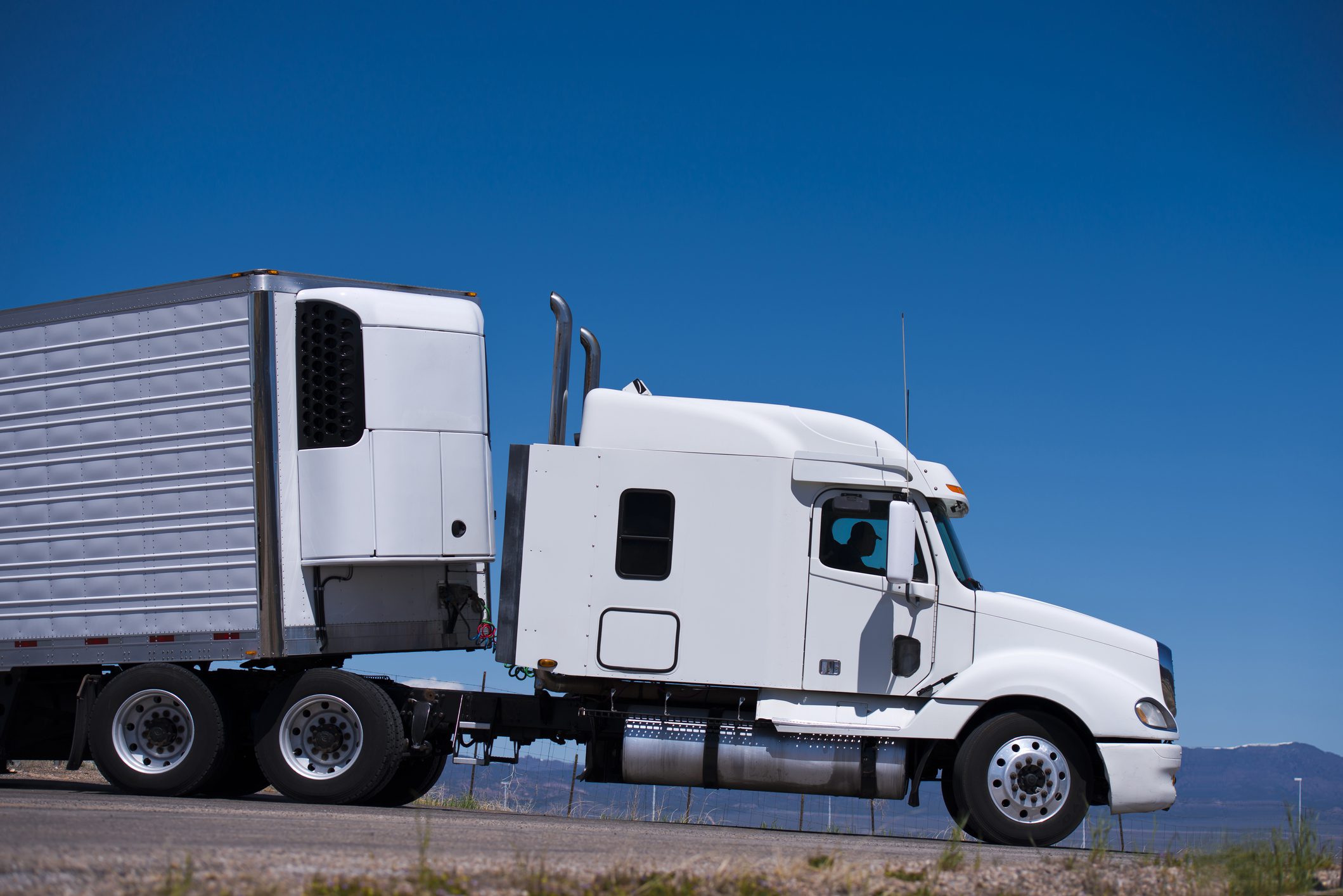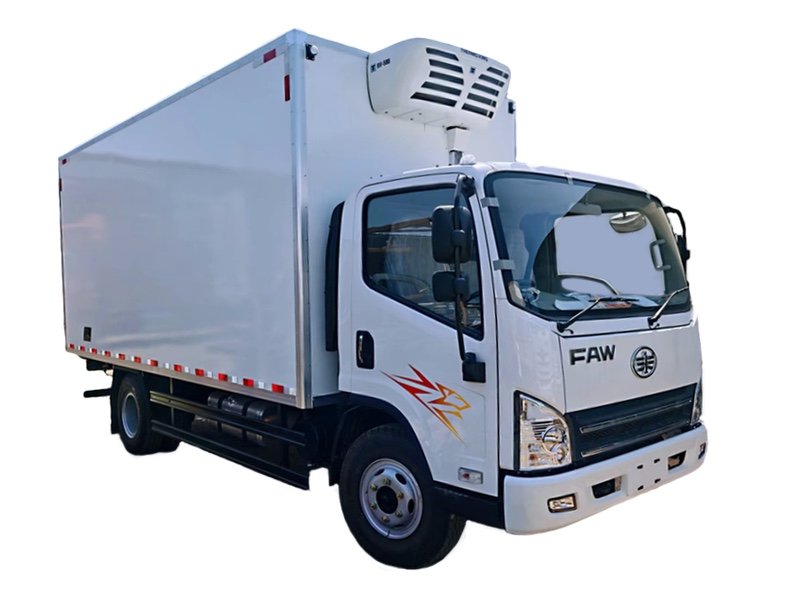Top Advancements in Transport Refrigeration: Enhancing Efficiency and Safety And Security
The landscape of transportation refrigeration is undergoing significant transformation, driven by technologies intended at enhancing both effectiveness and safety. Secret developments such as smart temperature level tracking systems, green refrigerants, and automated course optimization are essential in dealing with the industry's obstacles. These modern technologies not only make certain the stability of temperature-sensitive items however likewise contribute to sustainability efforts. As these innovations proceed to develop, it is vital to discover their ramifications on functional practices and governing compliance, motivating a better examination of exactly how they improve the future of transportation refrigeration.
Smart Temperature Level Keeping An Eye On Equipments
In the world of transport refrigeration, wise temperature level surveillance systems have become a crucial technology for ensuring the stability of temperature-sensitive products. These innovative systems leverage Net of Points (IoT) technology to give real-time data on temperature changes, making it possible for drivers to keep optimum problems throughout the supply chain. By continually tracking the temperature level of refrigerated containers and vehicles, companies can swiftly determine inconsistencies that may endanger product quality.

Moreover, clever monitoring systems typically integrate automated signals and alerts, enabling stakeholders to react quickly to any prospective issues. This positive strategy not only lessens the risk of perishing however additionally enhances compliance with governing requirements governing food security and pharmaceutical transportation.
The integration of data analytics within these systems likewise facilitates anticipating upkeep, assisting drivers to visualize possible devices failings prior to they occur. This capability minimizes downtime and optimizes operational effectiveness, inevitably leading to cost financial savings.
Eco-Friendly Refrigerants
Smart temperature tracking systems play an essential role in preserving item quality, but the efficiency of transportation refrigeration additionally hinges on the option of cooling agents made use of. In comparison, arising alternatives like hydrocarbon-based refrigerants and hydrofluoroolefins (HFOs) existing reduced GWP alternatives, offering both effectiveness and sustainability.
These green refrigerants not just minimize environmental impact but likewise line up with global regulations focused on phasing out damaging compounds. Their fostering can lead to enhanced power effectiveness, eventually minimizing operating expenses for transportation refrigeration systems. The use of all-natural refrigerants, such as ammonia and carbon dioxide, has gotten traction due to their excellent thermodynamic residential properties and lower environmental footprint.
Spending in eco-friendly refrigerants is not simply a governing conformity procedure; it represents a strategic choice that boosts brand credibility and fosters consumer loyalty. thermo king transport refrigeration. By prioritizing lasting methods, companies can add to a greener future while making sure the honesty of moved products
Advanced Insulation Products
Using advanced insulation products is important for enhancing transport refrigeration systems, as they significantly boost energy performance and maintain consistent temperature level control. Traditional insulation approaches typically drop brief in preventing thermal transfer, causing increased power intake and varying temperatures within cooled areas.
Emerging products such as vacuum cleaner protected panels (VIPs) and aerogels provide superior thermal resistance, enabling thinner accounts without compromising performance. VIPs, for circumstances, utilize a vacuum cleaner layer to decrease convective and conductive heat transfer, making them excellent for space-constrained applications. Aerogels, recognized for their porous and light-weight framework, give phenomenal insulation while significantly minimizing total system weight.
Moreover, incorporating stage change products (PCMs) into insulation systems can additionally support temperature levels during transportation. These products soak up and launch thermal power, efficiently buffering versus exterior temperature level variations.
The integration of these advanced insulation materials not only reduces the operational expenses connected with energy intake yet additionally expands the shelf life of temperature-sensitive goods. As the transport refrigeration market remains to develop, find more info the adoption of ingenious insulation innovations will be crucial in boosting both performance and safety and security in chilled transportation.
Automated Course Optimization
The performance of transport refrigeration systems is considerably improved with automated route optimization, which leverages sophisticated formulas and real-time information to determine one of the most reliable courses for distribution. By assessing different elements such as traffic patterns, climate condition, and shipment windows, these systems can substantially minimize travel time and fuel usage.
Automated course optimization reduces human error and subjective decision-making, which can cause inadequacies. This technology enables fleet supervisors to allocate resources more properly, making sure that chilled products preserve their called for temperature level throughout the trip. By enhancing courses, firms can also enhance consumer fulfillment via prompt shipments.
Moreover, automated systems can adjust to unanticipated scenarios, such as road closures or sudden website traffic spikes, permitting dynamic rerouting. This versatility not just safeguards the honesty of temperature-sensitive products yet additionally adds to overall functional effectiveness.
Implementing automated route optimization can lead to substantial expense savings while decreasing the carbon impact connected with transport. As companies progressively prioritize sustainability, this development attracts attention as a critical element in modern transportation refrigeration, aligning functional objectives with ecological duty. Ultimately, automated path optimization represents a significant development in the quest for effectiveness and safety in transport refrigeration.

Real-Time Information Analytics
Automated course optimization considerably benefits from the integration of real-time information analytics, which supplies important insights read here right into the efficiency of transportation refrigeration systems. By making use of real-time information, transportation drivers can monitor temperature changes and tools efficiency, making certain that disposable items are maintained within needed parameters throughout transit. This aggressive method not only enhances the quality of the delivered items yet likewise alleviates the threat of wasting and loss.

In addition to enhancing performance, real-time analytics boosts security by guaranteeing compliance with regulative criteria for temperature control. This not only shields public wellness yet additionally fortifies a firm's credibility - refrigerated transportation thermo king. As the transport refrigeration market develops, the integration of real-time information analytics arises as a foundation for driving technology, sustainability, and operational quality
Verdict
Finally, the developments in transportation refrigeration substantially boost both performance and safety within the market. Smart temperature level surveillance systems and real-time data analytics offer vital oversight, while environmentally friendly refrigerants and progressed insulation products add to sustainability and power effectiveness. Moreover, automated course optimization algorithms not only minimize travel time however also decrease ecological influence. Collectively, these developments represent a critical development in transportation refrigeration, ensuring conformity with governing standards and advertising a greener future.
The landscape of transportation refrigeration is undertaking substantial improvement, driven by technologies intended at improving both efficiency and security.Smart temperature tracking systems play a crucial role in preserving item high quality, but the effectiveness of transport refrigeration likewise hinges on the selection of cooling agents used. Their adoption can lead to boosted energy efficiency, eventually minimizing operating expenses for transportation refrigeration systems. Inevitably, automated course optimization stands for a considerable improvement in the pursuit for performance and safety and security in transportation refrigeration.
In conclusion, the developments in transport refrigeration substantially boost both efficiency and safety within the sector.